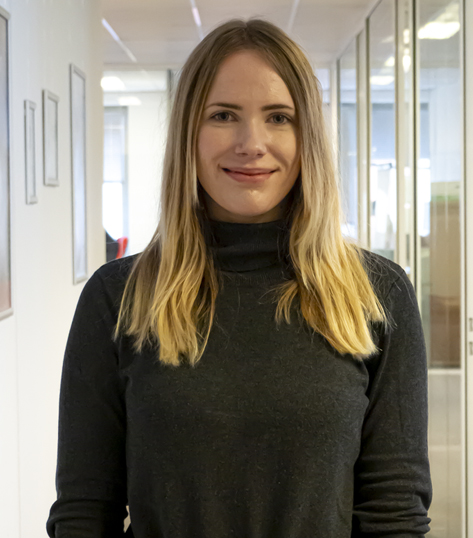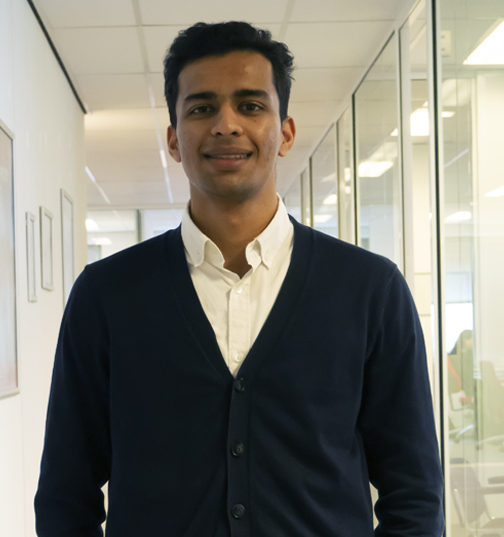Experiences of our new team members
Their experiences so far at OCS
Maylin Graebenstein - Trainee Programmer & Pranaav Ganesh - Trainee Programmer
Our colleagues Maylin and Pranaav both started at OCS Life Sciences with our Life Sciences Traineeship. We would like to get to know them better. Who are these new colleagues, and what is their background? Therefore, we have interviewed them about their first experiences with us. We are thankful they have joined our team.
Can you tell us about your background? After completing my bachelor’s degree in Psychology, I chose to pursue a career in the field of public health. Therefore, to broaden my knowledge in the health industry, I went on to study MSc Health Sciences at the Vrije Universiteit Amsterdam.
Of course, we understand your choices in the field of public health. What is your personal motivation to pursue a career in our industry? I have always had an interest in the outcomes of clinical studies. However, I was in doubt that I would enjoy setting up and conducting clinical trials just as much as I enjoyed analyzing the results. Therefore, I was excited to find the job advert for the OCS Life Sciences Traineeship, in which tasks revolve around preparing and analyzing the data collected in clinical studies.

We are glad you started our traineeship. What topics did you cover? And how did you experience the traineeship, which is almost as important? The traineeship consisted of SAS e-learnings, coaching sessions with experienced programmers, CDISC trainings and project presentations. Within only two months, I passed the SAS Base Exam, acquired knowledge about CDISC standards and got insights into ongoing studies in life sciences. Learning so much in such a short amount of time was made possible by the excellent support by the OCS Life Sciences Team. I appreciate the approachability and patience by everyone I worked with and feel very welcome in the team.
Why do you like working at OCS? Now, I am starting on actual project work, my first tasks including double programming SDTM data sets and validating programs. I am excited to apply my newly acquired knowledge and am looking forward to further improving my programming skills. Although I never considered myself a tech nerd, I very much enjoy puzzling with data and being one of the first persons to see the raw outcomes of interesting studies. Thanks to my positive experiences during the first months at the company, I am happy to call myself a member of the OCS Life Sciences Team and am excited for what my future at OCS holds.
Pranaav Ganesh

Can you tell us something about your education and work experience? As a student of (Health) Economics, I was initially drawn to the Healthcare and life sciences industry due to its quintessential objective of improving human health. During my education, I worked with healthcare data and was introduced to programming using STATA and SQL. This sparked my interest in learning SAS as it is widely used in Life Sciences. My role at OCS involves programming and working closely with clinical trial data.
Is working at OCS Life Sciences what you expected? I really enjoy that there are different roles and a wide range of projects one can take on in the life sciences area. Projects are in different phases of clinical trials.
The best part about OCS for me is its people and how approachable everyone is within
the organization. I’ve always felt welcome since my first day and enjoy the atmosphere at the office.
What are your core tasks after your traineeship? My core tasks involve using analytical and programming skills to ensure the standardization of clinical data. I enjoy statistical programming as every task is unique and is like solving a puzzle. These ‘puzzles’ are often easier to solve with the support of the team at OCS and the various trainings that we received.
What do you still want to achieve at OCS Life Sciences? I want to advance my programming skills in SAS and other languages. I hope to also broaden my knowledge of clinical trials and learn more about pharmacology through working with clinical data.


